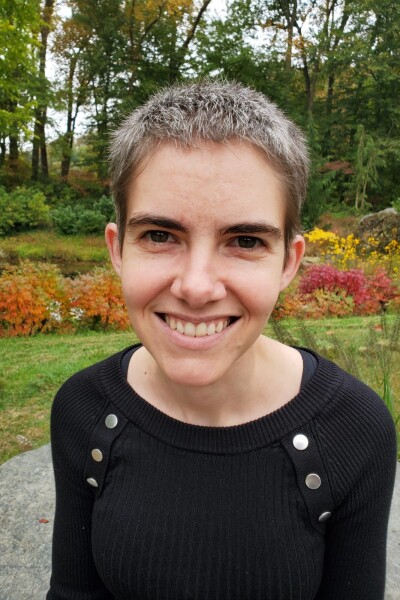Women’s studies changed my life
Women’s studies changed my life
By Katie Hirv ’22, Kayla Marthaler ’21, and Madison Freeland ’21
When Emily Dieker ’06 first came from Canton, Missouri, to Wartburg College, she was interested in majoring in business. Little did she know that one year at Wartburg would take her down a completely different path toward social justice and activism as a women’s studies major.
“I soon realized I was at a liberal arts college and wanted to take advantage of that. At the time, I wanted to learn and think and use my brain. I did an individualized major in women’s studies plus political science. I went to Dr. Penni Pier and a few other folks and was originally a political science major. Then I took a few women’s studies classes and loved it! I was obsessive about the course catalog and saw all these various women’s studies or gender classes, so I saw the option to put it together. I wrote a proposal [for the major] and got approved that May.”
Being at Wartburg, Dieker had the opportunity to explore classes that sparked her interest.
“Before I took a women’s studies class, I wouldn’t have used the term ‘feminist’ to describe myself. I didn’t know anyone who used the word ‘feminist’ growing up. Now I can’t turn it off! That’s who I am. It was always there; I just didn’t have the words to express it. One of the things that really stuck with me was from my freshman year, I took Contemporary Political Ideologies with Dr. Bret Billet during May Term. Every day, we learned about a new political idea. One day, we did feminism. That one day changed my mind. Dr. Billet got up in front of the class and said he was a feminist and gave all these examples and I was like, ‘Wait … so am I!’”
After Dieker’s eyes were opened to idea of women’s studies, she decided to focus on learning and growing both in and out of the classroom.

“Women’s studies changed my life. I had always grown up thinking that there were many injustices in the world that I wasn’t okay with but had no way of voicing and understanding that until I got into women’s studies. I see tie-overs, and it’s because women’s studies makes you think in different ways. You get a different mindset and understand how to solve problems in different ways and to listen to different perspectives and that there’s not always a right answer. I work in an incredibly diverse environment. I think that women’s studies has helped prepare me for some of the sensitivities involved in that.”
“I work at George Washington University as the director of the I.D. card office. In my capacity, I’m responsible for all access control on campus. George Washington is a big urban school, so cards are required to get into all buildings. I also manage all the meal plan and card issuance programs on campus.”
Dieker used her knowledge of women’s studies and political science to become socially and politically active on campus.
“I was involved with a few different organizations on campus while I was there. I helped form Alliance on campus my senior year, which had not existed prior. Because I knew I could put myself out there as a leader at Wartburg, it wasn’t as hard when I was an adult in my workplace. Wartburg is a really good place for students interested in social justice. For me, that meant women’s studies, for other students that might mean Alliance, Black Student Union, social work, service trips, et cetera. Being a small liberal arts college focused on service and leadership really opens up those opportunities for students.”
Since Wartburg, Dieker has found that her women’s studies major has more connections to practical applications than she originally thought.
“I got involved with Women’s History Month in 2012. I accept all the nominations, make sure we have a diverse group of women to recognize, then write short bios of them and provide additional information about their work. Women’s studies at Wartburg gave me the tools and vocabulary to recognize and address discrimination — sexism, racism, and all the others. And those skills are really important and relevant in any career and workplace, and even in your community. These are skills for being a good citizen.”